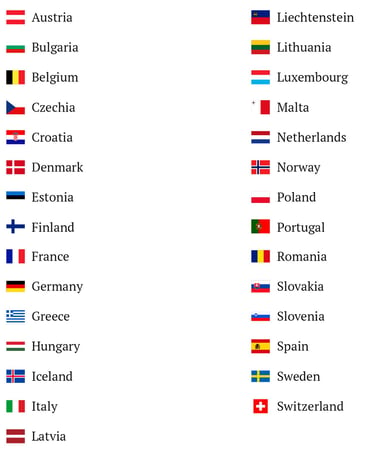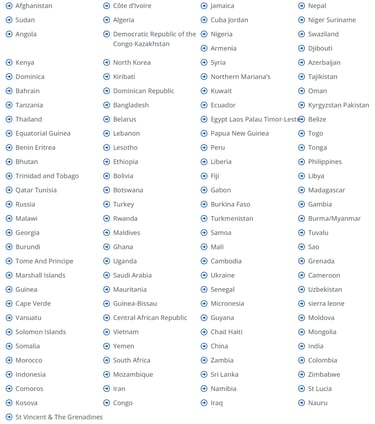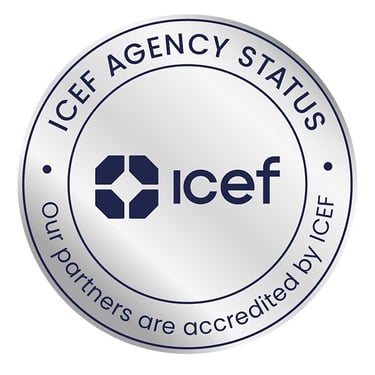

The Schengen visa offers individuals the opportunity to transit through or reside in multiple member states within the Schengen Zone. Under the short-stay scheme, it allows for a maximum stay of 90 days, although this can vary depending on the specific type of visa granted. Given that India represents a significant portion of tourists visiting Schengen countries annually, Indian applicants must familiarize themselves with the eligibility requirements, associated fees, and various regulations governing the visa application process. Understanding these factors can help streamline the application, ensuring a smoother journey into Europe.
Schengen Visa for Indians
Schengen Visa Zone
A Schengen Visa allows access to 29 member states or countries which are part of the Schengen Agreement. Within the Schengen Zone, there are 26 member states with 22 members from the European Union Member States and the remaining four from the European Free Trade Association (EFTA). The member states do not carry out border checks at their internal borders as the controls are based on predefined criteria as per the Schengen agreement. The Schengen Area/Zone is defined by the Schengen Agreement where the members allow free and unrestricted movement of people, goods, services, and capital, based on common rules. The members share common travel and movement rights which helps them in controlling external borders by strengthening the common judicial system and police cooperation. The Schengen Zone consists of the following members :


Features of the Schengen Zone
The abolition of borders between the members of the Schengen area benefits the citizens and the governments in various ways. Few of the features of the Schengen Zone are listed below -
Within the Schengen Zone, the citizens of any country can liberally cross the internal borders without any border checks (subject to a valid Schengen Visa or permit).
The members share common standards for crossing the external borders.
Police and Judicial collaboration to fight crime effectively.
The presence of Schengen Information System (SIS), a unique database to share information pertaining to individuals, goods, criminals, etc.
Borders checks can be introduced for a maximum of 30 days if required.
Security System of the Schengen Zone
The Schengen Zone has implemented strong security systems to protect the citizens from fraud, criminals, etc. The security system consists of a Visa Information System (VIS), Schengen Information System (SIS), and European Dactyloscopy (EURODAC) that helps the members in developing and sharing a database for various reasons. The database helps the members access information about people entering the Schengen Zone, people who are flagged for criminal activities, and people who are banned from entering the Schengen Zone. The details of each of the systems are listed below -
Visa Information System (VIS) - Collects and exchanges information on short-stay visa applications.
Supports Visa Issuance and Border Check Processes
Protects Schengen Travelers
Supports Asylum Applications
Improves security measures
Schengen Information System (SIS) - Collects and exchanges information of people who are suspected to be criminals along with data of people who are not allowed to enter/reside in the Schengen Zone. Moreover, it collects information about stolen/lost assets and missing people.
Allows Collaboration of Border Control and Law Enforcement
Supports Vehicle Registration Collaboration
European Dactyloscopy (EURODAC) - A fingerprint database to identify asylum seekers and illegal border-crossers.
Supports applications of Asylum Seekers
Supports VIS
Avoids, identifies, and explores crimes, terrorism, and other threats
Eligibility of Schengen Visa Application
All Indian citizens and citizens of other nations who are currently residing in India can apply for a Schengen Visa in India. The citizens of the following countries are required to apply for a Schengen Visa to visit any of the Schengen member states -
Nationalities of the following countries require an airport transit visa to change the aeroplane at an airport in a Schengen Area country during the course of their travel -
Application Process for the Schengen Visa
The completed application form along with the required documents need to be submitted by the Embassy/Consulate or its representatives in India. The following list mentions the required details for the application of the Schengen Visa -
Filled in the application form ( option of online and physical forms) with the following details -
Surname/family name as per the passport
Surname/family name at birth, if different from present name
First Name(s) as per the passport
Date of Birth in MM.DD.YYYY format
Place of Birth as per the passport
Country of Birth
Current Nationality, if different from nationality at Birth
Gender
Marital status
If the applicant is a minor, then details such as full name, address, and nationality of the person holding legal guardianship or parental authority is required on the form.
National Identity Number, if applicable
Travel Document Type with options ranging from Ordinary Passport, Diplomatic Passport, Service Passport, Official Passport, and Special Passport to Other types of travel documents.
Travel Document Number along with, date of issue, valid until, and issuing authority.
Applicant's mailing address along with the email address and Telephone Number
Details of residence in another country, if the applicant lived in a country other than the current nationality.
Current Occupation
Details of Employer or Educational Institution
Purpose for the Trip whether it’s Tourism, Business, Official Visit, Medical Treatment, Study, Transit, Family/Friends, Cultural, Sports, Transit/Airport Transit, or any other.
Destination Member State
Member State of first entry
Number of Entries required
Duration of the intended stay or transit indicates the number of days
Details of Schengen Visas Issued during the past three years.
Fingerprints
Details of Entry Permit for the Final Destination Country, if applicable
Arrival Date
Departure Date
Details of the invitation
Details of Travel and Living Expenses
Personal details of a Family Member who is residing in a European Union, EEA, or Swiss National
Signature along with Date and Location
Two photographs of the applicant as per the visa application guidelines
Applicant's passport with at least three months of validity after the return date and copies of the previous visas, if any.
A €30,000 travel insurance coverage with validity across the Schengen area.
The itinerary and a cover letter stating the purpose of the visit.
Details of flight itinerary including flight numbers and dates of travel along with entry and exit details.
Details of accommodation during the entire visit.
Details of marital status.
Proof of sufficient financial funds to support the visit and all other expenses.
Additional documents for applicants who are:
Employed - Employment contract, current bank statement of latest 6 months, leave permission from your employer, Income Tax Return (ITR) form, etc.
Self-employed - A copy of your business license in India, company bank statement of the latest 6 months, and Income Tax Return (ITR).
Students: Proof of enrollment and no-objection certificate from school or university.
Retired - Pension statement of the latest 6 months
Schengen Visa Fees for Indian Passport holders
The Schengen Visa fee is a non-refundable mandatory fee which differs based on the type of the visa and the applicant’s country. Most embassy/consulates allow multiple payment methods such as cash, debit and credit cards, etc.
Visa Category, Visa Fee in Rupees, Visa Fee in Euro
Schengen Visa for Adults 4,400 60
Schengen Visa for children between 06-12 years of age 2,600 35
Schengen Visa for children below six years of age Waived
The visa fee is subject to the current exchange rates. The visa fee is waived for Indian pupils, graduate and postgraduate students who are travelling for educational training and study purposes. Moreover, the visa fee is also waived for individuals up to 25 years of age who are applying for a visa for non-profit participation in seminars, sports, cultural or educational events. Additionally, the Indian researchers visiting any of the Schengen Members to carry out scientific research, are not required to pay the visa fee. Applicants are advised to refer to the website of specific Schengen states to obtain further information pertaining to additional visa waiver schemes.
Schengen Visa Types
There are various types of Schengen Visas which determine the validity and limitation of the visit. Based on the consulate/embassy of the member which issues the visa, the validity and rules may differ. The Schengen Visa is broadly divided into the following three categories.
Uniform Schengen Visas (USV) - This type of visa allows the holder to transit through or to reside in a Schengen area for a maximum of 90 days in a six-month period from the date of entry. Based on the purpose of the travel, the visa can be obtained either for transiting through the airport of a Schengen country without entering the country or for staying within the Schengen Area for a specified period as per the visa validity. The Schengen Airport Transit Visa falls under the ‘A’ category whereas the short-term visa comes under the ‘C’ category. The short-term visas can be obtained under the following schemes -
Single-entry -A single-entry visa allows its holder to enter the Schengen Area only once for a specific period of time. Once the visa holder leaves the Schengen Area, the visa’s validity expires.
Double-entry - Based on the validity of the visa, the visa holder can enter the Schengen Area twice within the specified duration. When the visa holder leaves the Schengen Area for the second time, the visa expires.
Multiple-entry - The visa holder can choose to enter and leaves the Schengen Area multiple times within the specified duration. The Uniform Schengen Visa is applicable for Austria, Belgium, Czech Republic, Denmark, Estonia, Finland, France, Germany, Greece, Hungary, Iceland, Italy, Latvia, Lithuania, Luxembourg, Malta, Netherlands, Norway, Poland, Portugal, Slovakia, Slovenia, Spain, Sweden, and Switzerland.
Limited Territorial Validity Visas (LTV)-LTV allows the visa holder to enter and visit a specific country in the Schengen Zone. The visa holder cannot enter any other area of the Schengen Zone which is not specified in the visa. LTV is issued in very few instances such as the non-availability of a valid travel document or other humanitarian reasons.
National Visas - The National Visas are issued to individuals such as students and professionals who need to reside in a Schengen country for a specific period of time. National Visas can be obtained under single-entry and multiple-entry schemes.
Under the three categories of Schengen Visa, the following types of visa are granted to the applicants -
Tourist Schengen Visa
Business Schengen Visa
Student Schengen Visa
Working Schengen Visa
Transit Schengen Visa
Tourist Schengen Visa - When an individual needs to visit any of the Schengen Area to meet his/her family/friends or for tourism, he/she needs to apply for a Tourist Schengen Visa. Once the visa is approved, the visa holder can reside in a Schengen country for a maximum of three months, unless the visa mentions a different. This type of visa doesn’t allow the visa holder to work in the Schengen Zone, unless the visa mentions differently. Citizens from the specified countries are required to apply for a short-term Tourist Schengen Visa when they wish to travel to any of the Schengen Zone. Whether the visa is obtained under the single-entry or multiple-entry scheme, the visa holder is not allowed to stay for more than 90 days in six months from the date of entering the Schengen Zone.
Documents Required For Tourist Schengen Visa
Along with the filled in application form, the following details/documents are required for the application process -
One passport format photograph with a light background where the complete face is captured.
A valid passport with three months of validity from the departure date. The passport must have at least two blank pages.
Copy of the confirmed airline ticket for the return journey.
Travel visa insurance policy which is valid in all Schengen countries. In the event of a visa application rejection, the applicant can claim a refund after cancelling it.
Proof of accommodation.
Latest bank statement for the past six months.
An official affidavit of support is applicable for applicants who will require financial support for their visit.
Details of the travel plan.
First-time travelers need to submit additional documents.
Invitation letter, if applicable
Depending on the particular Schengen country the applicant will be entering first and residing the most number of days during the visit, the visa application will need to be submitted at that particular consulate/embassy in India. Applicants are advised to apply for the Tourist Schengen Visa at least two weeks before the departure date of the travel.
Tourist Visa Validity- The Tourist Visa allows the visa holder to reside in the Schengen Zone for a maximum of 90 days. Based on whether it’s a single-entry or multiple-entry visa, the visa holder can enter and leave the Schengen zone accordingly. If the visa holder needs to reside in a Schengen Zone for more than 90 days, he/she will need to apply at the consulate/embassy again. Business Schengen Visa - To visit any of the Schengen Area for the sole purpose of business, the individual must apply for a Business Schengen Visa. The visa is issued under the business specifications of the short-term visa scheme.
Documents Required For Business Schengen Visa
Along with the filled in application form, the following details/documents are required for the application process -
One passport format photograph with a light background where the complete face is captured.
A valid passport with three months of validity from the departure date. The passport must have at least two blank pages.
Copy of the confirmed airline ticket for the return journey.
Travel visa insurance policy which is valid in all Schengen countries. In the event of visa application rejection, the applicant can claim for a refund after cancelling it.
Proof of accommodation.
Latest bank statement for the past six months.
Official affidavit of support is applicable for applicants who will require financial support for their visit.
Details of the travel plan.
First-time travelers need to submit additional documents.
Invitation letter, if applicable.
Depending on the particular Schengen country the applicant will be entering first and residing the most number of days during the visit, the visa application will need to be submitted at that particular consulate/embassy in India. Applicants are advised to apply for the Tourist Schengen Visa at least two weeks before the departure date of the travel.
Tourist Visa Validity - The Tourist Visa allows the visa holder to reside in the Schengen Zone for a maximum of 90 days. Based on whether it’s a single-entry or multiple-entry visa, the visa holder can enter and leave the Schengen zone accordingly. If the visa holder needs to reside in a Schengen Zone for more than 90 days, he/she will need to apply at the consulate/embassy again.
Business Schengen Visa - To visit any of the Schengen Area for the sole purpose of business, the individual must apply for a Business Schengen Visa. The visa is issued under the business specifications of the short-term visa scheme.
Documents Required For Business Schengen Visa
Along with the filled in application form, the following details/documents are required for the application process -
One passport format photograph with a light background where the complete face is captured.
A valid passport with three months of validity from the departure date. The passport must have at least two blank pages.
Copy of the confirmed airline ticket for the return journey.
Travel visa insurance policy which is valid in all Schengen countries. In the event of a visa application rejection, the applicant can claim a refund after cancelling it.
Proof of accommodation.
Latest bank statement for the past six months.
An official affidavit of support is applicable for applicants who will require financial support for their visit.
Details of the travel plan.
First-time travelers need to submit additional documents.
Invitation letter, if applicable.
A brief profile of the applicant’s working place(company/organization)
Memorandum and Article of Association in original certified copy/trade license/proprietorship or partnership documents.
Proof of Accommodation and other documents based on the consulate/embassy.
Business Visa Validity - Based on the nature of the business and the applicant’s request, he/she may stay up to a maximum of three months or 90 days per year in between the period of 6 months. Depending on the particular Schengen country the applicant will be entering first and residing the most number of days during the visit, the visa application will need to be submitted at that particular consulate/embassy in India. Applicants are advised to apply for the Business Schengen Visa at least two weeks before the departure date of the travel.
Student Schengen Visa - If the applicant is a student and desires to pursue studies in any of the Schengen countries, he/she will be required to apply for a Student Schengen Visa. The students from the countries which require a Schengen Visa to enter the Schengen zone must follow the application process as specified by the particular consulate/embassy of that country.
Documents Required For Student Schengen Visa
Along with the filled-in application form, the following details/documents are required for the application process -
Valid travel documents such as a passport with at least three months of validity from the travel date.
Proof of means of subsistence in either cash, traveller’s cheque, credit card or any other means to support the entire duration of the stay.
Proof of accommodation
Details of the travel itinerary.
Medical/travel insurance is valid for the entire stay.
Letter of acceptance from the university where the student intends to study.
Receipt of processing fee payment and other details as specified by the particular consulate/embassy.
Student Visa Validity - If the duration of the study exceeds 90 days period to complete the whole academic period, the applicant/student must also apply for a residency permit which will allow him/her to reside for one year. Based on the Schengen country the student is visiting, he/she will be required to apply for a visa in that particular embassy/consulate in India. Applicants are advised to apply for a Student Schengen Visa at least three months before the planned travel date.
Working (Employment) Schengen Visa – Residence Permit - This type of visa allows citizens from non-Schengen countries to work in a Schengen country with the help of a Residence Permit. The applicant may reside alone or with his family in the specified Schengen country during his/her employment. The citizens of Australia, Canada, USA, Israel, Japan, New Zealand, Switzerland, and many other European countries can apply for their Residence Permit after entering the Schengen zone without a visa.
Documents Required For Working (Employment) Schengen Visa
Along with the filled-in application form, the following details/documents are required for the application process-
One passport format photograph with a light background where the complete face is captured.
A valid passport with three months of validity from the departure date. The passport must have at least two blank pages.
Copy of the confirmed airline ticket for the return journey.
Travel visa insurance policy which is valid in all Schengen countries. In the event of a visa application rejection, the applicant can claim a refund after cancelling it.
Proof of accommodation.
A valid employment contract and other documents as specified by the particular Schengen country.
Working (Employment) Schengen Visa Validity - The applicants are advised to apply for a Working (Employment) Schengen Visa at least two months before the planned travel date. The visa is issued on a long-term scheme which entitles the visa holder to all other benefits in the Schengen Zone as it applies to any other citizen of the Schengen Zone.
Transit Schengen Visa - The citizens of certain countries are required to obtain the Transit Schengen Visa to change flights within the Schengen Zone. This type of visa is applicable for travellers who are not entering the Schengen territory but changing an aeroplane while travelling from a non-Schengen country.
If you have specific questions about the application process or requirements for a Schengen Visa, feel free to ask! Emanate Globus can provide detailed information or help clarify any points you may be unsure about. If you prefer to reach out directly, providing contact information or an email address is a great way to ensure you receive tailored assistance. Let us know how you’d like to proceed!





